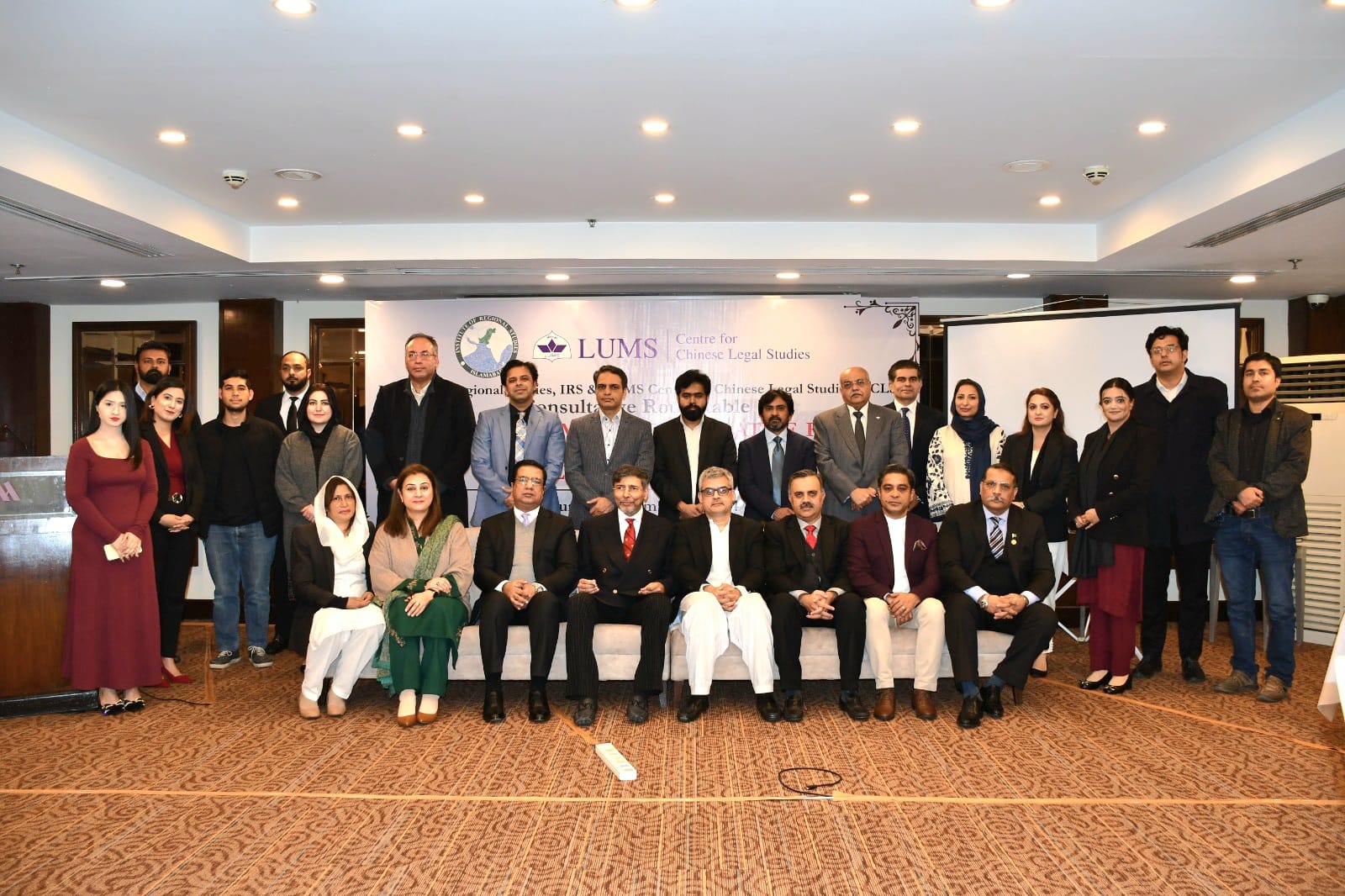Islamabad, December 29, 2024 – The Europe Today: A consultative roundtable titled “A Holistic Assessment of Legislative Reform, Investment Protection, and Dispute Resolution under CPEC” was held in Islamabad, co-organized by the Institute of Regional Studies (IRS) and the Centre for Chinese Legal Studies at LUMS. The event brought together prominent legal and policy experts, including Honourable Justice Mansoor Ali Shah and Justice Jawad Hassan, to discuss strengthening legal mechanisms under the Belt and Road Initiative (BRI) and the China-Pakistan Economic Corridor (CPEC).
Judicial Silk Route Initiative
Justice Mansoor Ali Shah proposed the establishment of a “Judicial Silk Route” between China and South Asia to enhance legal collaboration and create efficient dispute resolution mechanisms. He emphasized adopting advanced legal frameworks inspired by Chinese practices and called for the creation of BRI commercial mediation centers and domestic commercial courts in Pakistan. These measures, he noted, would facilitate investment protection, streamline dispute resolution, and make Pakistan more investor-friendly by reducing its reliance on traditional litigation.
Strengthening Legal Frameworks for CPEC
Justice Jawad Hassan highlighted Pakistan’s legal advancements in supporting CPEC, which is now entering its third phase. He praised the establishment of the Special Investment Facilitation Council (SIFC) as a confidence-boosting measure for investors. Justice Hassan also underscored the importance of alternative dispute resolution (ADR) mechanisms, such as arbitration and mediation, in resolving complex legal challenges in large-scale infrastructure projects.
He lauded Pakistan’s accession to the Singapore Convention on Mediation, describing it as a progressive step toward reinforcing ADR practices and fostering international investment confidence.
Strategic Importance of Legal and Institutional Development
Mr. Khalid Taimoor Akram, Executive Director of the Pakistan Research Centre for a Community with Shared Future, emphasized Pakistan’s strategic location as a transit route for China and Central Asian states. However, he highlighted the absence of a comprehensive legal framework and ADR mechanisms, urging the establishment of dedicated facilities to address disputes efficiently.
Ambassador Jauhar Saleem, President of IRS, expressed concerns over Pakistan’s institutional capacity to handle complex legal contracts for large-scale projects. He stressed the urgent need to enhance legal and institutional frameworks to eliminate ambiguities and ensure the effective implementation of CPEC initiatives.
Building Trust and Addressing Policy Challenges
Dr. Sikander Ahmed Shah, Director of the Centre for Chinese Legal Studies at LUMS, emphasized the broader significance of the Pakistan-China partnership. Beyond infrastructure, he noted that the collaboration represents shared values and mutual trust, urging both nations to tackle legal and policy challenges to secure the partnership’s long-term success.
Other speakers included Dr. Tariq Mahmood, a barrister and arbitrator, who discussed international arbitration standards, and Ms. Riffat Inam Butt, Secretary of the Law and Justice Commission of Pakistan, who stressed judicial efficiency and policy alignment to attract investments and sustain growth.
Other notable contributions included Mr. Shahid Mehmood Khokhar, Chairman, Implementation Tribunal for Newspaper Employees (ITNE), Mr. Aziz Qazi, Advocate Supreme Court and Vice Chairman of the Islamabad Bar Council, Advocate Supreme Court Raja Muqsit Nawaz, Barrister Zopash Khan, Mr. Muzaffar Ahmed Mirza, Chief Prosecutor and Head of Legal Affairs at the Securities and Exchange Commission of Pakistan (SECP), Mr. Ashfaq Ahmad Khan, Deputy Inspector General of Police and Commandant of Police College Sihala (PCS), Barrister Minaal Tariq, Advocate Sibah Farooq and Mr .Shozab Majeed , legal Expert.
Key Takeaways
The event, attended by judges, policymakers, legal scholars, and industry leaders, concluded with discussions on shaping the strategic direction of CPEC Phase II. It underscored the critical need for robust legal reforms, investment protection measures, and dispute resolution mechanisms to support Pakistan’s economic and infrastructural development under CPEC and BRI.
The event was moderated by Ms Minahil Toor , Lead Expert, Centre for Chinese Legal Studies, LUMS.
The roundtable served as a platform for collaborative dialogue, aiming to align Pakistan’s legal and institutional frameworks with international standards and foster a more investor-friendly environment.


